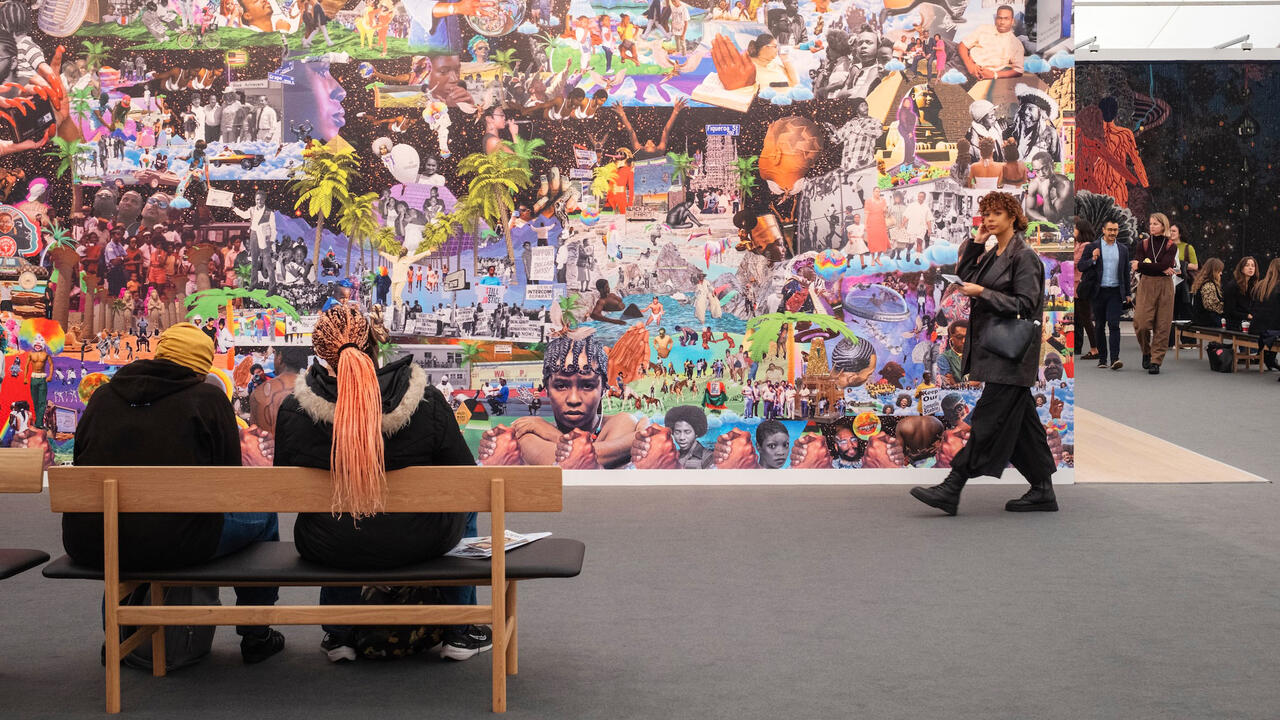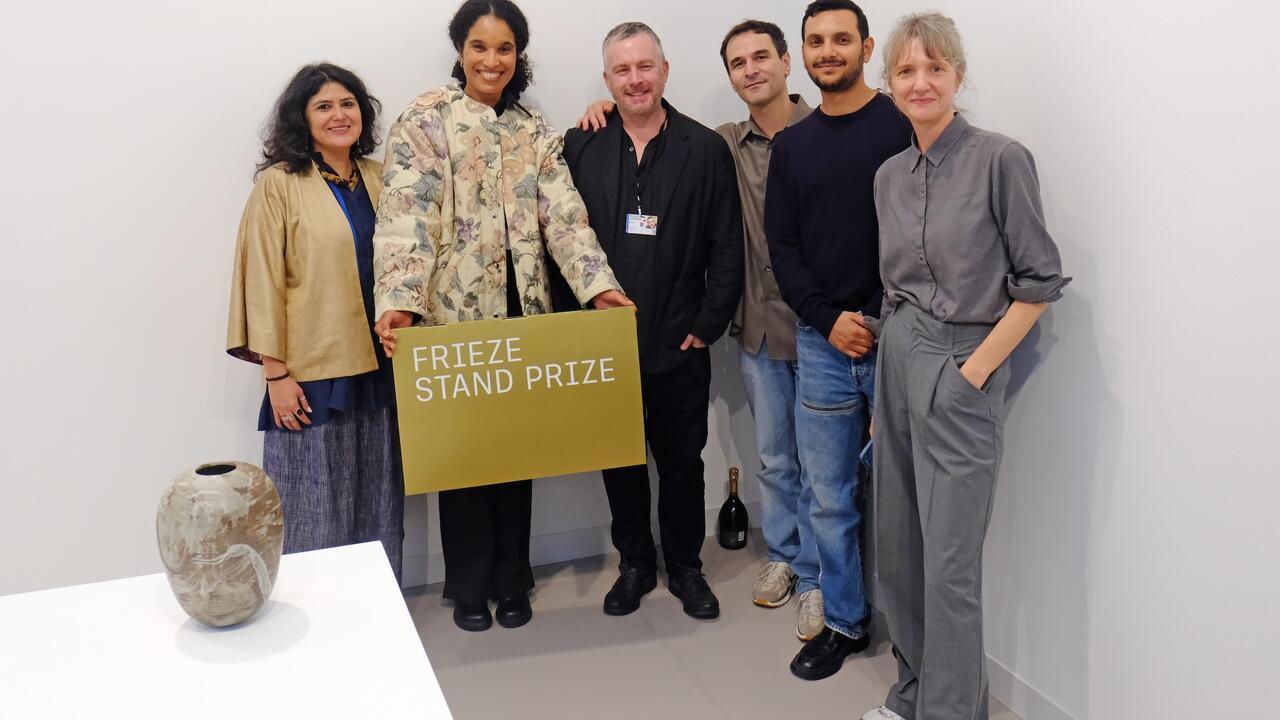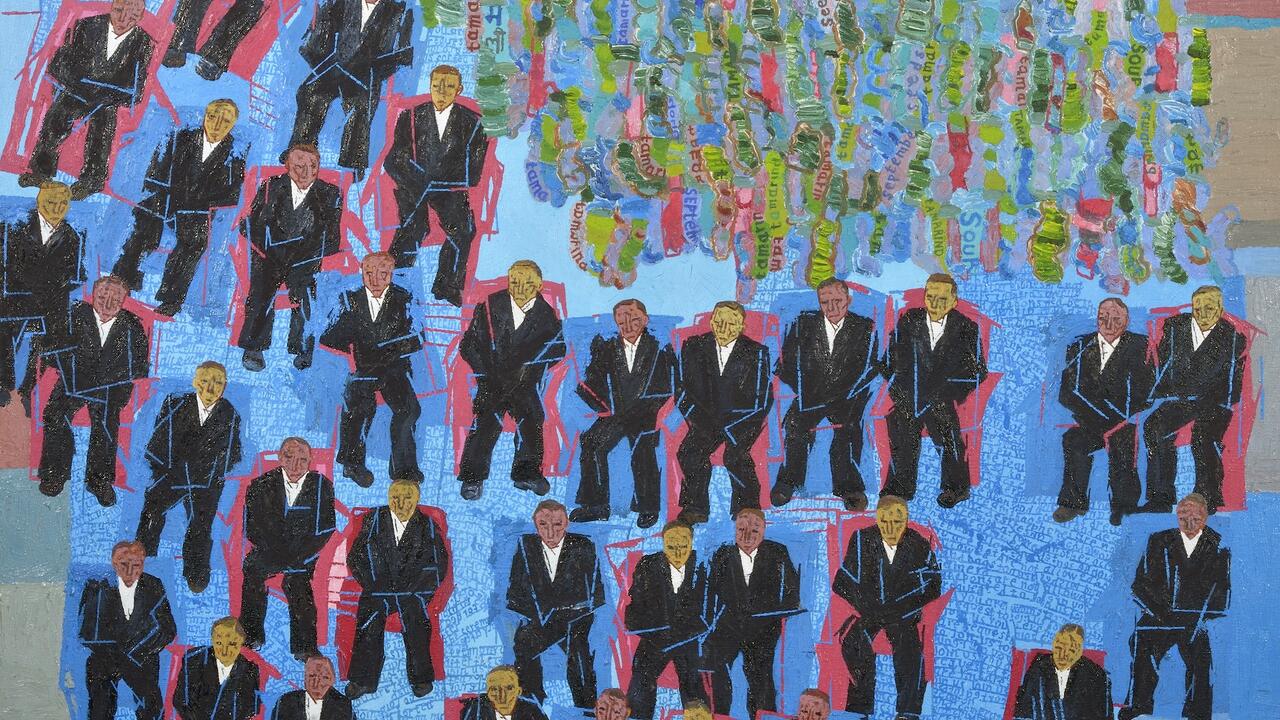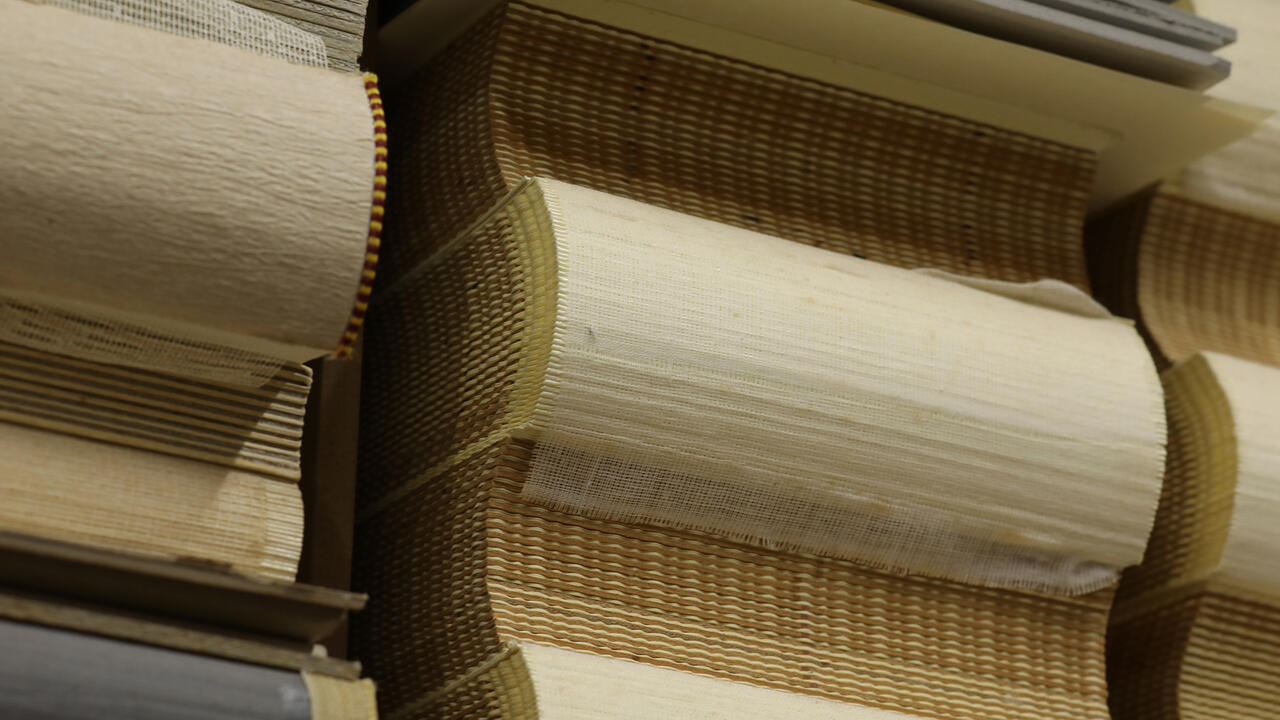The Lungs of a Loved One
In Prajakta Potnis’s show at Project 88, Mumbai, her uncle’s illness eerily presages the Covid-19 emergency
In Prajakta Potnis’s show at Project 88, Mumbai, her uncle’s illness eerily presages the Covid-19 emergency

In 2019, Prajakta Potnis’s uncle was suffering from a recurring chest infection. Scans showed a mysterious substance inside his lungs: a combination of chemicals had begun to froth at intervals, making it difficult for him to breathe. Her uncle had spent most of his life working in a detergent factory and the soap had trickled in. This lung lather was caused by physiological reasons, but also psychosomatic: if he got anxious or stressed, the symptoms got worse. Potnis would sit with him for extended periods, working almost like a forensic artist, as he described his condition. These details became the basis for ‘A Body Without Organs’, a show that brings together painting, sculpture and video.

Potnis’s work turns the body under capitalism inside out, looking for the traces it carries within. In He Woke up With Seeds in His Lungs (2020), six standalone LED light boxes each display a carefully staged X-ray film. Potnis made these by assembling collages of objects including steel wool, coconuts, water-filled balloons, washing machine tubes and glass beads, and taking them to be X-rayed at a radiology clinic. In between patients, she would slip into the room and place her strange creations onto an aluminium plate. After being radioactively exposed, the film inside was developed with chemicals. There was no way of knowing exactly what the final image was going to look like: every piece is an experiment of process.
The X-rays look almost like photograms, or the scans of people suffering from pica – an eating disorder in which patients develop a compulsion to swallow non-edible objects, such as sharp objects, paint, dry wall or soil. The X-rays visualize a body that, like that of Potnis’s uncle, does not know what is seeping into it – but which, due to systemic or societal pressures (pica is particularly common in prison inmates), begins to ingest harmful things despite itself. The everyday materials Potnis uses take on a bodily aspect: the steel wool looks like soft, webbed tissue, the glass beads like little organs, the washing machine tube a long, gasping oesophagus.
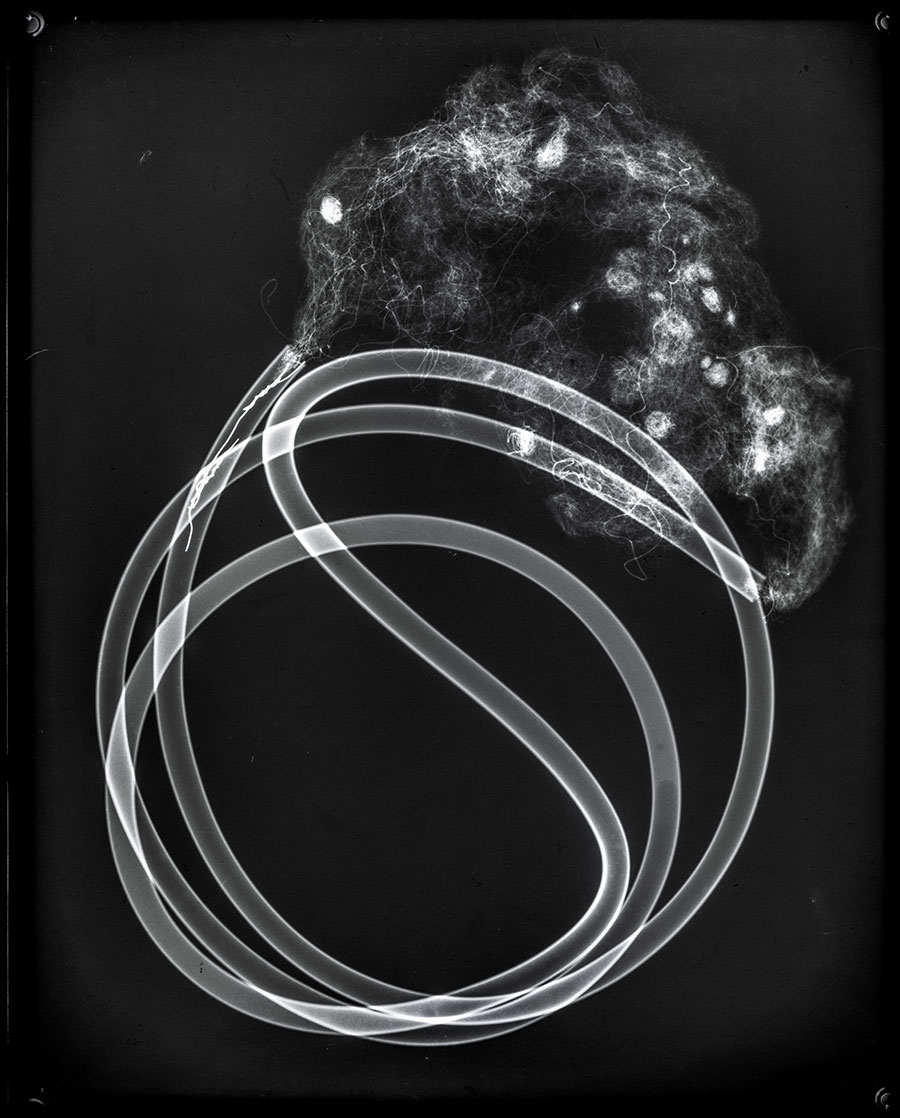
The X-ray light boxes are placed together with Paper Works (2019–20), a series of pencil, acrylic and emulsion paintings on Lanaquarelle. Each titled with a time stamp, they depict a sequence of scenes that play out in the same pale, powder blue room. In 11:23pm, a cloud-like mattress hovers inches off the floor, beneath an X-ray of a pair of twisted feet. The ceiling secretes a thin patch of liquid, like an oozing sore. As the series progresses, things get leakier, more overwhelming: by 2:12 pm, choppy waters have rushed into the room, submerging everything. The room has swallowed its inhabitants whole: an image that takes on eerie new resonances in our moment of mass quarantine.

While Potnis’s show now seems like a premonition of the health emergency to come, it is also an immediate response to the injury and suffering of a loved one. The lather in her uncle’s lungs is recreated in the sculpture Attrition (2020), where a cornflower-blue soap bar is placed on the floor, a delicate layer of foam spilling around it. A fine needle – hidden in the rafters – drips saline onto the soap every 20 seconds. The sculpture is timekeeper to the show, steadily marking out time in our strange limbo, behind closed doors.
Main image: Prajakta Potnis, Night Vision, 2020, film still. Courtesy: the artist and Project 88, Mumbai; photograph: Anil Rane









